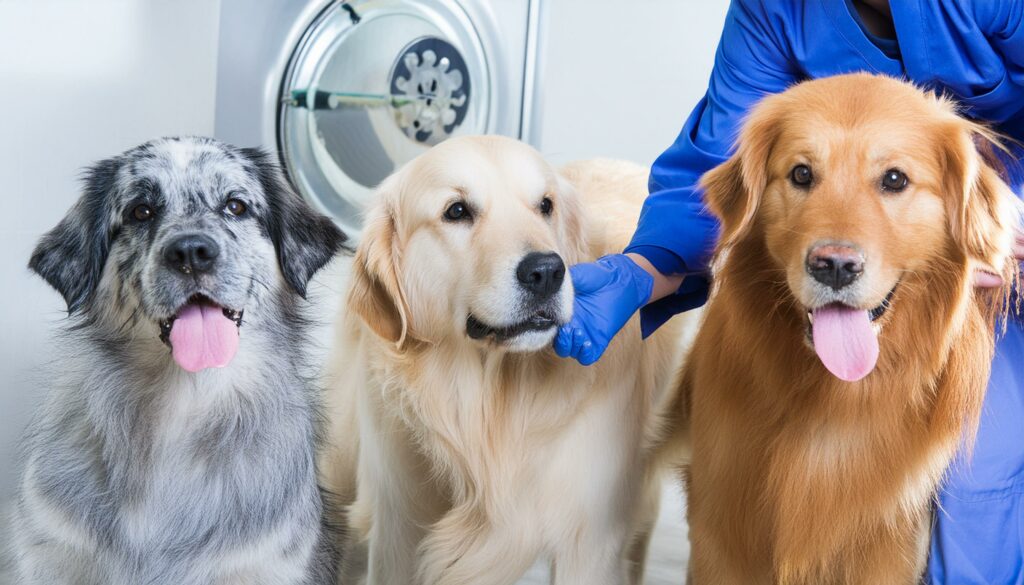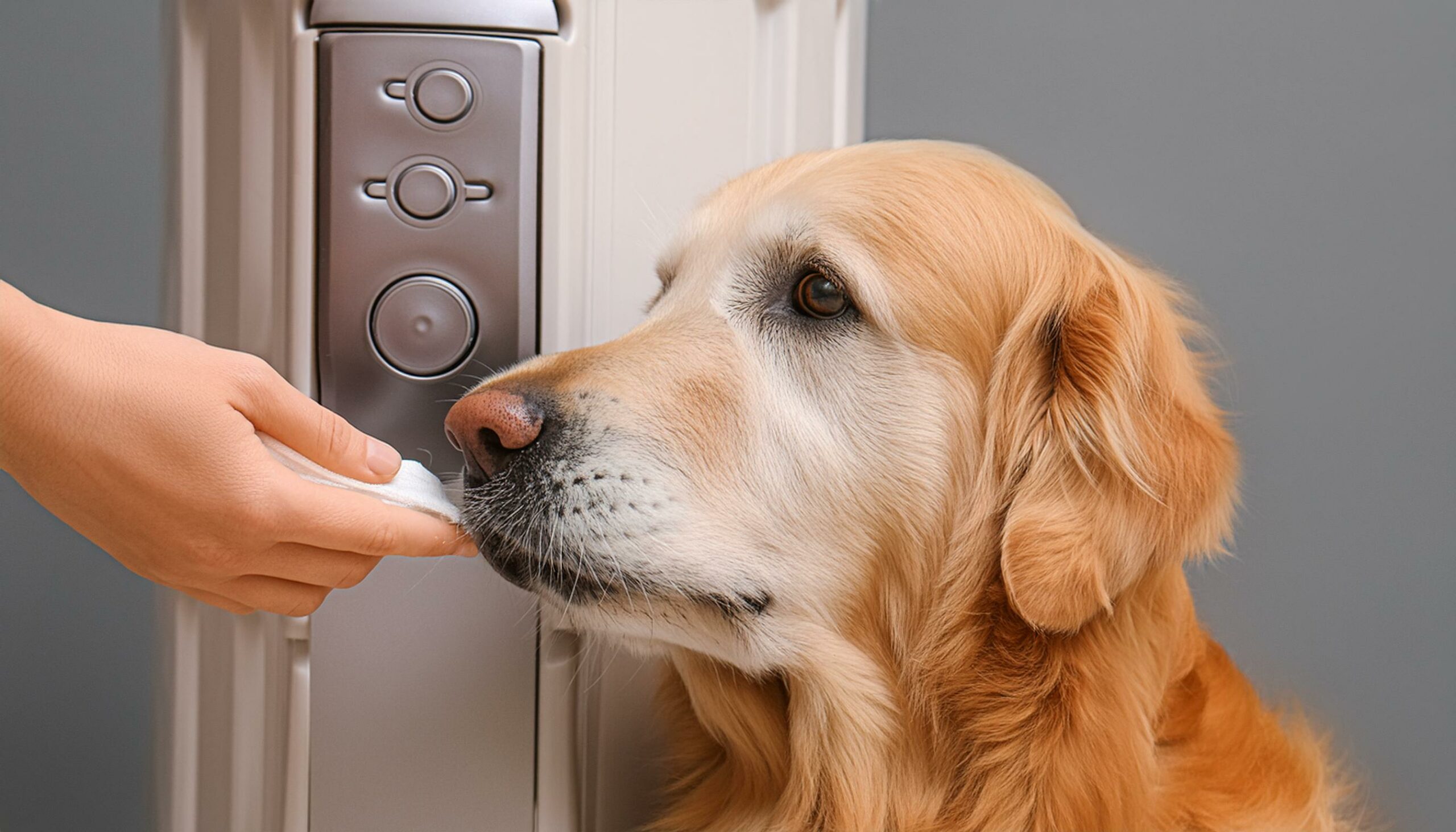Golden Retrievers, with their affable disposition and charming personality, have long held a special place in the hearts of dog lovers. However, potential pet owners often pose a crucial question: do Golden Retrievers smell a lot? Let’s unravel the truth behind this query and explore practical strategies to maintain a pleasant environment while cohabiting with these beloved companions.
Understanding Golden Retrievers
A Brief History and Purpose
Originating from Scotland in the 19th century, Golden Retrievers were selectively bred as hunting dogs renowned for their adeptness in retrieving game from land and water. Their gentle temperament and versatility have since endeared them to families worldwide, where they excel not only as loyal companions but also as therapy and assistance dogs.
Physical Characteristics
Golden Retrievers are distinguished by their sturdy build and luxurious golden coats, which vary in shade and texture. Their double-layered fur provides insulation and protection, requiring regular grooming to preserve its luster and manage potential odor.
Behavioral Traits
Known for their amiable nature and intelligence, Golden Retrievers thrive on human interaction and are eager to please. Their adaptable disposition makes them well-suited for various roles, from household pets to working partners in fields such as search and rescue.
Factors Influencing Golden Retriever Odor
Several factors contribute to the natural scent emitted by Golden Retrievers, including genetic predisposition, grooming practices, and dietary choices.
Genetic Predisposition
Each dog possesses a unique genetic makeup that influences factors such as skin oil production and susceptibility to certain odors. While some degree of scent is inherent to the breed, diligent care can mitigate any excessive or unpleasant odors.
Grooming Practices
Regular grooming plays a pivotal role in managing Golden Retriever odor by removing dirt, dead hair, and odor-causing bacteria from their coats. Brushing sessions help distribute natural oils, preventing matting and enhancing the coat’s overall health and appearance.
Dietary Impact
A balanced diet rich in essential nutrients is vital for Golden Retrievers’ overall well-being, including skin and coat health. High-quality dog food devoid of fillers and artificial additives supports optimal digestion and minimizes potential sources of odor.
Dispelling Myths: Do Golden Retrievers Smell More?
Contrary to popular belief, Golden Retrievers do not inherently emit more odor than other breeds. While their dense coats may trap dirt and debris, consistent grooming and hygiene practices can effectively manage any potential scent. Comparisons with other breeds often reveal similar grooming requirements and odor profiles, dispelling misconceptions surrounding Golden Retriever smell.
Effective Odor Management Techniques

Maintaining a fresh and inviting atmosphere in your home with a Golden Retriever involves implementing a multifaceted approach encompassing grooming, nutrition, and environmental adjustments.
Regular Grooming Regimen
Establishing a routine grooming schedule tailored to your Golden Retriever’s needs is paramount for odor control. Brushing their coat several times a week helps prevent mats and tangles, while periodic baths with a mild dog shampoo remove accumulated dirt and odors.
Dietary Considerations
Opting for high-quality dog food formulated with wholesome ingredients supports your Golden Retriever’s overall health and minimizes potential sources of odor. Consult with your veterinarian to determine the most suitable diet based on factors such as age, activity level, and any existing health concerns.
Environmental Adjustments
Maintaining a clean and hygienic living environment is essential for minimizing odors associated with pet ownership. Regular vacuuming, washing of bedding and toys, and adequate ventilation help eliminate lingering smells and create a comfortable space for both you and your canine companion.
Practical Tips to Minimize Golden Retriever Odor

In addition to the fundamental principles of grooming, nutrition, and environmental hygiene, consider incorporating the following tips into your routine:
Bathing Frequency
Adhere to a regular bathing schedule, taking care not to overdo it, as excessive bathing can strip the skin of its natural oils and lead to dryness or irritation.
Utilizing Odor-Neutralizing Products
Invest in pet-safe sprays or candles designed to neutralize odors and freshen up your home, creating a more inviting atmosphere for guests and family members alike.
Home Cleanliness Practices
Maintain cleanliness throughout your home by promptly cleaning up pet-related messes and regularly disinfecting high-traffic areas to prevent the buildup of odor-causing bacteria.
Addressing Health Concerns Related to Odor
While Golden Retrievers are generally robust and resilient, certain health issues can manifest as changes in odor and warrant veterinary attention.
Common Issues like Ear Infections
Golden Retrievers, with their pendulous ears, are susceptible to ear infections due to the accumulation of moisture and debris. Symptoms include odor, redness, and discharge, necessitating prompt veterinary care to prevent complications.
Skin Conditions
Skin conditions such as allergies, dermatitis, and fungal infections can contribute to odor and discomfort in Golden Retrievers. Treatment typically involves identifying and addressing the underlying cause through medication or dietary modifications.
Dental Health
Poor dental hygiene can result in bad breath and oral odor in Golden Retrievers. Regular brushing, dental chews, and professional cleanings by a veterinarian help maintain oral health and prevent dental issues.
Seeking Professional Assistance
If you observe any concerning changes in your Golden Retriever’s odor or overall health, it’s imperative to consult with a veterinarian promptly. Signs indicating a need for professional evaluation include persistent odor, excessive scratching, and changes in appetite or behavior.
Regular veterinary check-ups are crucial for monitoring your dog’s health and addressing any emerging issues proactively. Your veterinarian can offer personalized recommendations for maintaining your Golden Retriever’s well-being and ensuring a fulfilling life together.
Conclusion
In conclusion, while Golden Retrievers may possess a distinct odor characteristic of their breed, it’s neither excessive nor insurmountable with proper care and attention. By embracing a holistic approach encompassing grooming, nutrition, and environmental management, pet owners can cultivate a harmonious living environment conducive to the well-being of both their Golden Retriever and themselves.
FAQs (Frequently Asked Questions)
Do Golden Retrievers smell more than other breeds?
No, Golden Retrievers do not inherently emit more odor than other breeds. Diligent grooming and hygiene practices can effectively manage any potential scent.
How often should I bathe my Golden Retriever?
Bathe your Golden Retriever as needed, typically every 6-8 weeks or as recommended by your veterinarian. Avoid excessive bathing, as it can strip the skin of its natural oils.
What type of diet is best for minimizing Golden Retriever odor?
Opt for high-quality dog food formulated with wholesome ingredients to support skin and coat health. Consult with your veterinarian for dietary recommendations tailored to your dog’s specific needs.
My Golden Retriever has a persistent odor. What should I do?
If your Golden Retriever exhibits a persistent or foul-smelling odor, consult with your veterinarian to rule out any underlying health issues. They can provide guidance on appropriate diagnosis and treatment.
Are there any home remedies for reducing Golden Retriever odor?
While regular grooming and hygiene practices are paramount, there are no guaranteed home remedies for odor control. Consult with your veterinarian for safe and effective solutions tailored to your dog’s individual requirements.
